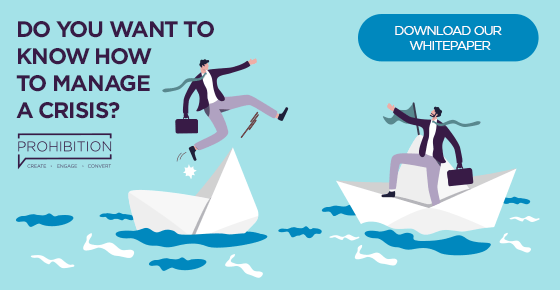
Crisis management is something every company needs to implement as part of its business processes. It is an essential component of business continuity planning.
Without a documented plan, how would you handle a crisis?
You might be thinking “It’s never going to happen to my business!”, and while that may be true, the risk is always there. If you think you could never be the victim of a crisis, think again. In a recent article, it was stated that “a crisis has an impact of 10 times greater than a positive message or an idea.”
With the above data point in mind, how would your audience react if one of your users gets hurt using one of your products? Don’t think for a second that your company couldn’t be at risk for such a thing happening – let alone what kind of damage would befall your brand should an unforeseen event occur.
It’s said that if you fail to plan, then you plan to fail. This quote could not be any more true for crisis planning. Although it’s always ideal to avert any type of crisis from happening, it can’t be always prevented. However, the time to react when a crisis does happen is critical in order for the company to have its best possible chance at recovering from it and emerging better than before.
At Prohibition PR, we have years of working with some of the top organisations in the country on their crisis management plan and its implementation. Rather than walk the walk alone, take advantage of our crisis management experience, so that no matter what goes wrong, your company will come out stronger and better.
How do you define crisis management?
Crisis management is the process of dealing with an unfavourable situation that could seriously damage a company’s reputation, sales and growth. A crisis can involve anything from a natural disaster to a product recall to a terrorist attack.
The goal of crisis management is to respond quickly and effectively to minimise damage and position your company for recovery once the current crisis has passed.
A successful crisis plan is proactive. It aims to reduce the risk of a crisis happening in the first place by anticipating potential problems, such as natural disasters or product safety concerns. It also creates procedures for how you will react if something goes wrong. Knowing exactly what you’re going to say and do if a crisis occurs is important because every second counts during a crisis.
Crisis management is crucial for high-profile businesses that can be subject to serious damage to their reputation whatever the sise or scale of the crisis.
What is a crisis?
A crisis, in relation to a business, is when an unexpected event occurs that could potentially have a negative effect on the business.
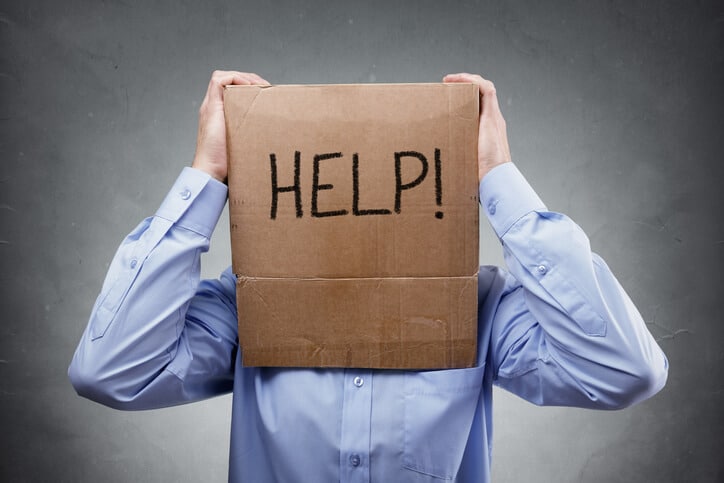
When you are running your own company, there are many different types of crises that can occur. Here are some examples:
Theft: If your business has experienced theft of inventory or equipment, you have experienced a crisis. This could cause your business to lose money because of the items stolen. You will also have to pay for things such as insurance deductibles and additional security.
Fire: If your business has experienced a fire, you have experienced a crisis. This could cause your business to lose money because it could destroy valuable equipment or inventory, and it could cause expenses such as repairs or relocation.
Customer incident: If you have experienced an incident where one of your customers was injured by one of your products or services, this could be considered a crisis for your business. This would result in having to pay damages to the injured customer and could damage your reputation as well as cause financial loss due to lost customers and damaged reputation.
Environmental issue: If you have experienced an environmental issue that has caused negative publicity for your business, this would be considered a crisis as it will affect not just your everyday operations, but also the reputation of your business.
Crises and crises management are important because they can have drastic consequences on your business, your brand and your reputation. When you’re faced with a crisis, how you react can mean the difference between success and failure.
What situations can cause a crisis?
There are many different types of crises that can happen in the workplace. Some are obvious and others are not so, but all will cause a crisis if they’re not dealt with properly. Here is a list of some common crises that affect organisations all over the world.
Technological breakdowns
A technological crisis also called a technical failure or system crash is an unforeseen event that interrupts the normal function of a computer system. These failures are often unexpected and cause a partial or complete loss of data. Some can be as a result of human error.
This normally happens in cases where the technology fails to work as planned, or when there is a delay in the scheduled arrival of a particular service/good. This could also be connected to performance or security issues.
Recalls and product issues
Recalls happen when a company identifies a defect in their product that should be repaired or replaced. Product recalls and product issues can easily lead to early death for most brands. They are two of the biggest crisis types that are bound to impact your company negatively.
According to one study, 80 per cent of consumers said a product recall would affect their perceptions of a company. This means companies can lose as much as 80 per cent of their brand equity if they don’t properly and quickly respond to a crisis. Further, the same study found that customers who have had a bad experience with a product or service are significantly less loyal than those that haven’t. The likelihood of making repeat purchases drops significantly.
Personnel matters
A personnel crisis is one in which the employment of an employee becomes intolerable because of negative work performance, a disruptive attitude, or problematic substance abuse.
Personnel crises can be part of an organisational crisis process that affects the morale, productivity and profitability of an organisation. Ultimately, a personnel crisis can lead to confrontations with clients, reduced effectiveness of other employees, damage to an organisation’s reputation, and severe financial losses.
The best way to keep a personnel crisis from going out of hand is to implement a crisis prevention process that enables early intervention. Careful planning can help managers identify signs of deterioration (low productivity, high absenteeism) in their employees. Handle them quickly by taking remedial actions like counselling or putting the employee on probation.
Natural disasters
Natural disasters are one of the most challenging crisis demands a company can face. Within minutes, a company’s facility may be severely damaged or destroyed. Customers and employees alike may be killed or stranded by floodwaters, hurricane winds, or earthquakes. Businesses may face serious financial loss due to physical property damage, forced production downtime, a shortage of skilled resources, liability claims and other unexpected costs.
Natural disasters are unpredictable. There’s no way to know when a hurricane, earthquake, tornado or other natural disaster is coming our way. But as disaster management experts and government agencies have learned over time, it is possible to prepare for disaster. This preparation can reduce the overall ‘impact’ that a disaster will have.
Problems on social media
As new media is evolving fast and people are always connected, social networks offer an impressive opportunity for everyone to express their opinion, rate and review a brand but also give feedback to solve issues. Sometimes, this can be used negatively.
Whether it’s on Twitter or Facebook, companies are always liable to conflicts and problems on social media.
Social media crises can be anything from embarrassing images being put online to employees going rogue using company accounts or even entire brands getting racist. It could mean anything really, but no matter what happens it is your company’s reputation that’s at stake.
Social media is a double-edged sword. It can either be an incredible asset to your business, or you can ruin your reputation in the blink of an eye.
Financial crisis
Even the most financially stable businesses will sometimes find themselves in financial crisis. Although such crisis situations should be avoided at all costs, it’s important to identify what type of crisis you are facing, as that may dictate the appropriate course of action.
Financial crises are usually caused by large unexpected expenses or losses. It could be something as simple as a major repair bill that wasn’t budgeted for or as complex as major damage from a natural disaster. The worst thing you can do at this point is panic. You want to take immediate action but make sure that your long-term goals aren’t set back by the short-term crisis.
How important is crisis management?
The first rule of crisis communication is to acknowledge the problem as quickly as possible. If you’re able to do so before the news media become aware of the crisis, you can control the message and limit the damage to your reputation. With this in mind, it pays to have a crisis plan in place should your business ever be faced with a crisis.
It’s important to have a plan in place because even if a crisis occurs, it’s not always possible to fix the problem immediately. While it might seem easier to ignore an issue or hope it will go away, this strategy rarely works. The problem may draw more attention to itself or be picked up by the news media anyway. When that happens, you want to be ready with an action plan and a unified message.
Most companies develop crisis communication plans that deal with several possible crisis situations. In each case, they outline what steps should be taken, who should do them and how they will be implemented. A crisis plan also include guidelines on how employees should respond at different stages of a crisis.
The difference between a well-planned response and an unplanned one may result in millions of million in sales, stock price volatility, and media coverage for the company.
Overall, the primary goals of crisis management are to:
- Inform the general population about the emergency situation in a straightforward and confident manner.
- With meticulous fact-checking, respond as truthfully as possible.
- Public health safety information, such as a product recall, should be communicated as soon as possible.
- Email, social media, and other forms of communication can all be used to reach your target audience.
- Create a narrative that shows the organisation is operating in the best interest of the community.
- For the sake of team cohesion, adhere to any crisis management strategies in place.
- Use what you’ve learned from previous events to predict and plan for future events.
It is never a good idea to wait until there is a crisis before thinking about crisis management. At Prohobition PR, we believe in the popular mantra that failing to plan is planning to fail. This is why we are always onboard to work with companies, helping them craft crisis management methods that is tailor-made for their business.
If you don’t have a crisis management strategy yet, it is never too early or too late to develop one.
Contact us at Prohibition PR. We can work with you to work something out.
What are the rules of crisis management?
The first rule of crisis management is to avoid a crisis. The second rule is to be prepared for a crisis when it happens. When you are faced with a major problem, your first priority should be to fix the immediate situation and then devote all available resources to damage control.
You need to keep in mind that the two most important things are how much harm has been done and what information has been made public. Your objective should always be to minimise the harm that has been done.
The most important things you can do in any crisis situation are:
Decide if there really is a crisis
It can be hard to recognise a crisis at first. For instance, the BP oil spill began as an industrial accident but became a full-blown crisis for the company that owned the oil rig. You need to step back from events and determine if there’s a real problem you have to deal with or if this is just an isolated event that isn’t affecting your business.
Respond quickly and in a decisive manner
One of the biggest mistakes we make in crisis communications is waiting too long to respond. Waiting for the dust to settle can be a big mistake because the longer you wait, the more damage you do. You need to act quickly and decisively to establish your credibility and reassure customers you are on top of the situation and have it under control.
This means:
- Putting out a press release as soon as bad news breaks. If you have time, craft a strategy and decide on what information should be released, what should be left out, who will talk about it and how they’ll talk about it.
- Responding quickly and consistently. The longer you wait to respond, the more likely reporters are going to get tired of hearing from you. And if you’re not consistent in your message, you look confused or even dishonest.
- Deciding who will handle media inquiries and then making that person available as often as possible. Reporters want people they can talk to all day every day if necessary, so don’t give them a reason to call someone else by restricting their access.
Ensure the safety and well being of human life
One key component of a crisis management plan is the safety and well being of human life.
The goals of crisis management are to prevent damage to the organisation’s reputation, restore calm and stability, return the organisation to its normal operations as quickly as possible, and ensure that people are safe.
To achieve this, the plan must ensure that the people responsible for dealing with a crisis can communicate with each other effectively and have access to important information.
Ensure that there is a free flow of communication
When a crisis strikes, it’s important to remember that free and open communication is the best way to resolve the situation. Even if you are angry, frustrated or upset, these emotions should not be communicated to your audience. If you do not have the answers to questions from your customers, tell them what you know and promise to get back to them with more information as soon as possible.
Trying to hide an issue or downplay its importance will almost always result in more damage to your company’s reputation than simply being honest and upfront about what has happened.
It also never hurts to apologise for any problems or inconvenience caused by your company’s actions, even though you may not feel that you were responsible for what happened. There is a big difference between taking responsibility and apologizing for mistakes that aren’t your fault.
What is a crisis management plan?
A crisis management plan is your plan for mitigating the effects of the crisis. When you’re facing a controversy, a disaster, or some other major disruption to normal business operations, your crisis management plan will help you minimise the negative impact that it has on your company.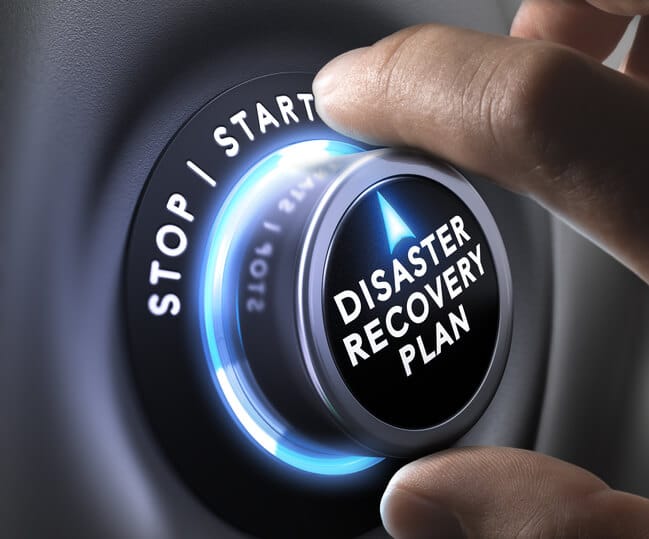
Telling customers what you’re doing to restore the situation and keep them informed about its resolution is also an important part of your plan. If you treat your customers like they are helpless and need to be told what to think or do in times of trouble, they’ll likely stop listening after a while. Give them all of the information they need in terms of what happened, how it affects them, and how you propose to fix it. Then give them some opportunity to comment on your ideas and ask questions so that there can be some back and forth between you and your client base.
Crisis management plans don’t have to be elaborate affairs either. They can be as simple as a checklist that you follow when something happens that threatens to disrupt business continuity or damage the goodwill of your brand.
Don’t have a crisis management plan yet? No problem.
Prohibition PR can create a bespoke crisis management plan for your company. Get in touch today.
How to create a crisis management plan
Creating a crisis management plan is one of the best things you can do for your business. It’s an excellent way to protect your brand, reputation and financial stability from negative situations that may arise. A good plan can help you save money, time and effort in the long run.
Not a lot of people know how to create a crisis management plan, so here are some easy steps that will help you get started:
Establish a crisis management team
The first step is to identify who will be part of your crisis management team — not just someone you can rely on for information and support, but also someone who is authorised to act on behalf of the company in case of an emergency.
In addition to employees, you may want to include outside contractors or consultants with expertise in related areas, such as public relations and law enforcement. Finally, consider people from the outside who can help deflect blame or provide expert advice. A spokesperson from a major customer or industry association would make an excellent addition to your team.
Access the risk
Plan the response
The response phase is very important in managing any crisis event.
Consider the following: How will I acknowledge the problem? How will I communicate the facts to the public? Who will speak for me, and when? How will I fix the problem or mitigate the damage? How soon should I respond?
Test the plan
You can organise your team, but you need to test the plan in a simulated environment. Understand the process and all of the roles that are required to manage a major crisis, and then try it out. The more you practice, the better you will be able to respond if there is an actual crisis.
Review and make updates
Figure out what is and isn’t covered by your current plan, and assess its effectiveness. How long does it take for communications to go from concept to implementation? Review the people who are involved in the plan. Do they have the resources needed? In addition to communication professionals, who are on this list? How can their roles and responsibilities be defined?
Review your plans for each medium (social media, website, etc.). Find out what is covered now and what needs work. Consider adding new channels if they are likely to be important in the future. Stay up-to-date on relevant legal issues. Know what laws affect how you can respond to a crisis.
If you don’t have a crisis management plan in place yet, Prohibition PR can provide a customised crisis management plan for your organisation. Get in contact with us right now.
What to include in a crisis management plan
It is good practice to have a well thought out crisis management plan in place. It will help you to remain calm and know how to deal with any form of negative publicity at any stage of a crisis.
The following is an outline of what you should include in your plan:
Risk analysis
The first step in many crisis management plans is a risk analysis. This process involves documenting all of the risks to your business, estimating their likelihood and impact, and creating a plan to mitigate them. These steps will allow you to create a comprehensive crisis management plan that’s customised for your business and its vulnerabilities.
Response procedure
What is your procedure for resolving issues that arise during a major crisis? Who will be making statements to the media? Will social media be used? If so, what is your social media response protocol? How will you communicate with customers and staff during a time of crisis? If you aren’t sure what steps to take during a certain type of crisis, research other companies’ responses to similar situations and use their strategies as inspiration for your own
Emergency contacts
A crisis management plan should include a list of the company’s main contacts so that you can easily find the person you need to reach when a crisis arises. This list should include names, titles, phone numbers and e-mail addresses. The plan should also include internal and external stakeholders.
Post-crisis analysis
After the crisis is over, it’s important to carefully assess what went wrong and how you can improve for next time. Was the social media reaction worse than you expected? Did it spread further than you thought it would? Were there any warning signs you missed?
Where did the crisis come from? Was it something that your company did, or something that was done to you (e.g. a customer complaint)?’
What was the impact of the crisis on your business? How many customers were affected and how did they react? What did they say in their messages to you?’
What have you learned from this experience that will help you better deal with crises in the future?’
What Is a crisis management team?
Crisis management teams involve a group of people who are organised in advance to respond to a crisis, whether it’s a natural disaster, a complaint about product quality or any other business challenge. When the team is prepared, you can respond quickly and effectively.
The team members should be familiar with your organisation’s mission, vision and values. They should understand your industry and the competitive environment.
The crisis management team’s primary responsibility is communication — imform employees, customers, stockholders and the media, quickly. Communication includes issuing statements, answering questions, distributing press releases and tracking media coverage about your company.
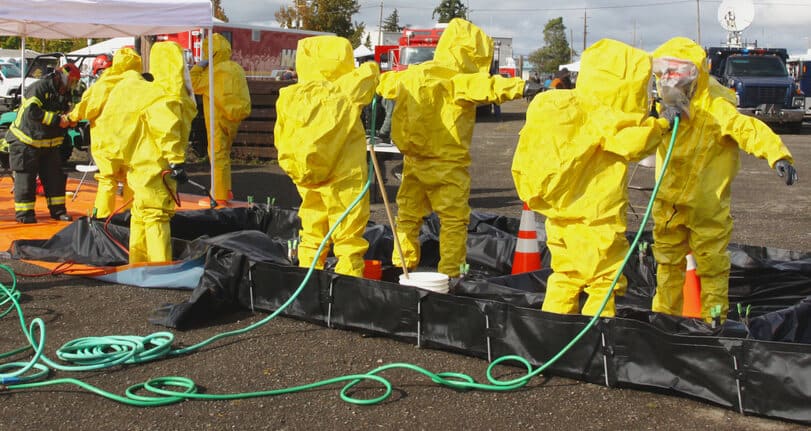
A crisis management team should also take charge of internal communications and stay in touch with key managers on plant floors and at customer service desks so that they can keep the organisation running smoothly during the crisis.
How to establish an effective crisis management team
When a crisis occurs, an organisation’s reputation can be severely damaged. If handled correctly, a crisis can be a good opportunity to communicate your mission and values to the public. But if not handled correctly, the damage to your reputation can be devastating.
Treating every crisis as unique will help you manage the situation more effectively. Here are the steps you should take to establish an effective crisis management team:
- Know your company’s goals and values
- Put the right people on your crisis management team
- Communicate your goals and values to staff members
- Make sure you have a solid commitment from senior leaders
- Ensure that you have the resources needed to respond to crises
- Have an effective communications plan in place before a crisis hits
- Know how to handle different types of crises
Lastly, be proactive. If you see several people complaining about a problem on social media or in comments on your website, address it immediately with a dedicated team member who can respond to all issues in real-time.
Who should be part of your crisis management team?
Effective crisis management begins with assembling a team to assist you in managing the situation.
This is a critical step to take, as a crisis is a particularly stressful period in an organisation’s life cycle. Not only does this place a burden on the existing staff, but it is also sure to raise several questions and concerns among the company’s personnel.
This crisis management team should consist of:
- The crisis manager
- The CEO or CFO of the company
- The HR manager of the company
- A PR personnel or someone from the press department
- A member of the company’s board of directors, senior management or an expert in crisis management
- People who are all extremely well-versed in crisis management and capable of doing so.
- All of these people should be well-versed on the past and future plans of the company.
You can begin crisis management once you’ve assembled a team.
At least once a week, the crisis management team should meet to address the company’s pressing situation. They’ll then examine the problem and come up with a plan to assist the organisation in its recovery efforts.
It is a good idea for a PR consultant to be part of your crisis management team. This individual will bring in a wealth of real-situation experiences that you cannot do without.
Why not get in touch with us at Prohibition PR to discuss sending an expert to join your crisis management committee?
The role of the crisis manager
In essence, a crisis manager is someone who takes care of the reputation of an individual, company or institution in the face of a serious and potentially damaging event. In most cases, this individual is a PR expert.
Crisis management is not just about being on hand for a fire-fighting exercise. It is more about preventing an incident from becoming a full-blown crisis. A PR consultant can advise on whether a crisis is likely and help to formulate an action plan in advance of any negative event.
Truly effective crisis management is about creating a positive impact. The aim should be to turn a story that could have been damaging into one which has a positive outcome for all concerned.
The skills and expertise required by a good crisis manager are varied, but they include:
- Being able to anticipate risk and be proactive – crises don’t happen overnight
- Having strong media relations skills
- Being able to think on your feet and respond quickly to new situations
- Understanding how social media works (this isn’t just about setting up accounts)
- Understanding how to use traditional media effectively
- Being able to work with stakeholders in order to develop effective solutions
Crisis management team checklist
- A crisis team manager should be appointed, as well as an alternate.
- Identify the roles needed on the crisis team and create detailed job descriptions with the help of the crisis team manager.
- Provide roles for spokespersons, safety chiefs, and liaison officers, as well as alternates. (An alternate should not hold another role in addition to their primary role.)
- For organisations following Incident Command, designated leaders of intelligence and planning, operations, logistics, and finance, as well as alternates.
- Assign crisis team members from the areas of communications; health, safety, and the environment; operations; legal; human resources; IT; and finance in addition to alternates.
- Ensure each individual is aware of the details of their role.
- You should repeat the process for each site, business unit, or geographic area.
- Practice all your crisis response plans and create a contact system for everyone involved. This may include phone trees, text messages, or notification software.
- You should schedule drills with your crisis response team at least semi-annually, to begin with and more frequently as you add more people.
Are you prepared for a crisis?
Crisis management is all about planning, preparation, and response. It’s a process that will help you deal with unexpected tragedies and difficult situations. If you’re unprepared and don’t have a plan in place, it’s going to be much harder to handle a major disaster when it happens to you.
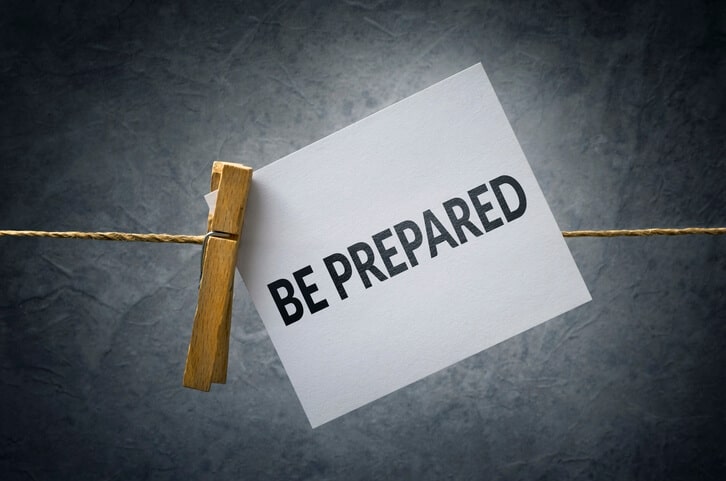
While there are a lot of things to put in place to prepare against a crisis, be sure to:
- Evaluate your team’s strengths and weaknesses
- Ask employees what they would do in a crisis
- Ask yourself how you would respond to a crisis
- Examine potential risks and vulnerabilities
- Establish lines of communication with key stakeholders
- Train staff on how to respond to crises
- Evaluate your technology needs
- Review existing policies, procedures and protocols regarding media communications
- Determine which directives need to be updated or revised
- During a crisis, be sure to gather facts about what is occurring without making any immediate statements or decisions
- Take control at the onset and determine how the information will be released in order to prevent rumours from spreading
- Remember that different audiences will want different kinds of information
- If there are multiple people who can speak on behalf of the company, decide who should say what
Sometimes, trying to handle this situation yourself can result in more damage being done to your image and reputation. It’s best to seek out the help of an expert who knows how to handle these situations when they arise.
There are many companies that offer crisis management services. It’s important that you choose one that has been recommended by someone you trust, or has been able to solve the problem for someone else in the past.
With the help of an expert, you can ensure your company is ready to handle any crisis head-on.
A good crisis management professional should be an extension of your team. They should have insight into what could happen with your operations based on their experience with similar companies or industries and their understanding of current business trends. Having this information at hand gives you a better chance of mitigating damage before it happens.
Should you hire a PR team for crisis management?
Whether you’re a startup, small business or a small department in a large corporation, having a PR team is not required but it certainly helps. When you’re in the throes of crisis management and doing damage control on a bad news story, having someone with crisis and risk management experience to help support you can be invaluable.
Trying to manage the fallout of a bad news story without an experienced PR team can be quite difficult and one wrong move can end up making your situation much worse. That’s why hiring an experienced professional team can make all the difference. The key is to know when to hire them and how to work with them effectively.
Hiring crisis management professionals will not only help you with the crisis management process, but they can also help with preventative measures before anything happens.
But what should you look for in a PR firm?
When a crisis occurs, time is of the essence. Here are four important questions to ask when choosing a PR firm:
Does the agency have experience? If you’re looking for an agency that can help you navigate a crisis, make sure they’ve done it before. Look at their track record and references.
Seek out an expert with experience addressing problems similar to yours. For instance, if your business has suffered from a data breach or an environmental issue, find someone who has expertise in those fields. When you have specific questions or concerns, ask them about their experience in those types of situations.
Has the agency handled cases that are similar to yours? If not, the effectiveness of their response might be suspect.
Do they have the right infrastructure? A good PR firm has a solid foundation in place before a crisis hits. This includes having experienced professionals and the latest technology, such as social media monitoring tools and live updates on news sites. A great agency will also have a team ready to respond when you need them most.
What’s their experience with your industry or competitors? If your agency doesn’t understand your industry, they won’t know how to handle issues that arise from it. Researching your competitors’ online reputation can also help agencies anticipate problems that might develop in your industry or market niche.
It’s also important to understand what types of clients they work with. A PR firm that caters mainly to non-profits will likely be more interested in working with you if you’re a non-profit yourself than one that works with small businesses or large corporations.
How do they protect information? Your PR firm should have security measures in place to protect client data, including access to secure websites and encryption technologies to protect sensitive data during email communication.
It’s not always about how big a company is or how much they charge, but rather what they bring to the table in terms of experience and expertise.
A larger agency may have more staff on hand to handle multiple projects at once, but it’s not always the case. Some of the top firms in the industry are smaller, as well as some of the most innovative public relations companies out there.
Prohibition PR is your trusted partner during a crisis
When your business is in the news, you have just one chance to get it right. And if you mess up, all that media coverage will have a direct impact on your bottom line. That’s why, when disaster strikes and the cameras are rolling, you call your crisis communications partner — Prohibition PR.
A crisis may occur due to any number of reasons, including but not limited to fraud, product tampering/poisoning, environmental disasters (such as oil spills), industrial accidents, financial problems, workplace violence and exposure of wrongdoing by the organisation or its members. When any of these issues come up, you need the right team in your corner.
Staying out of the headlines — and out of trouble — is a full-time job. And with Prohibition PR, you get a trusted partner in developing and implementing a proactive strategy for managing your reputation and addressing any issues with PR before they become problems.
Prohibition PR is crisis communications experts who work with businesses facing public relations challenges. Our team of PR specialists and communications professionals can help you develop an effective response plan that keeps you in the conversation while it protects your reputation. And we’ll handle all your calls, emails and social media inquiries — no matter how many reporters are calling or what time of day it is.
Our clients have relied upon us during some of the most difficult crises they have ever faced. We are told that we are thorough and relentless in our efforts to protect our clients’ image while at the same time effectively communicating the facts of their case.
We’ve been told that we understand the business of our clients and that we provide them with more than just media relations expertise; we help them understand how their company is perceived by the public at large and help them develop strategies to fix things.
Our team of PR specialists are on hand 24/7 to offer advice, guidance and appropriate solutions to assist you in protecting your reputation at this difficult time. It is essential that you seek professional advice as soon as possible so that we can work together to minimise the impact on your business and facilitate a speedy return to trading as normal.
We will do everything we can to ensure that our advice and the actions we take are in line with best practices and where necessary, we will advise you of alternative actions or strategies which we feel may be more appropriate for your business.
Whether you’re facing a small crisis or an all-out public relations nightmare, Prohibition PR can help you get through it smoothly and effectively.
We work with you to develop clear, effective messages, monitor and respond to coverage, manage reputation and image, craft soundbites and provide timely information – all while balancing the need for speed against the importance of accuracy.
Plan ahead against tomorrow’s crisis. Get in touch today.
For more interesting articles from us on PR in a crisis check out some of our other articles:
- The Top Ten PR Crises of 2021
- The top 11 crises of 2020
- Top nine PR crises so far for 2019
- Why it’s important to prepare for a PR crisis
- 10 Crisis Communication Tips Every Business Needs
- 11 Steps For Crisis Management

